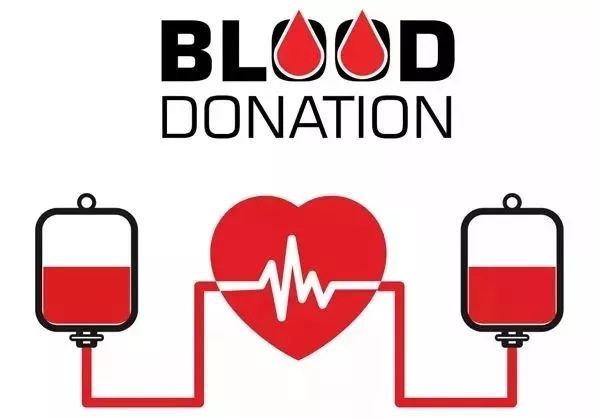June 14 is the 15th World Blood donor Day, and this year’s theme is “donating Blood for others to share your Life.” From January to May this year, 5.965 million people donated blood and 2065 tons of blood were collected, up 3.6 percent and 5.2 percent over the same period last year, according to figures from the National Health and Health Commission. But there are still many people who have doubts about blood donation, “will blood donation lead to anemia?” “may I donate blood among my immediate family members? “Let’s study together!

1. Does blood donation affect your health?
No. Regular blood donation will promote blood regeneration and circulation, reduce the incidence of related diseases, but should pay attention to the health care before, during and after blood donation.
2. Will blood donation spread the disease?
No. The needles and blood bags used for blood collection are disposable products which have been strictly tested by the state, and the collection of blood has strict operating rules and requirements. The blood of unpaid blood donors should be screened before blood donation, blood type determined, serological test after blood donation, accounting test, alanine aminotransferase, multiple “test pass” all qualified before the blood can be supplied to clinical, to ensure the safety of clinical use of blood.
3. Why do unpaid blood donors spend money on blood in hospitals?
The cost of hospital blood does not include the cost of blood products themselves, mainly from blood collection, testing, separation, refrigeration, transportation, equipment and reagent consumption and other costs. Unpaid blood donors and their immediate family members use blood free of charge, provincial tuition reimbursement of the special documents can be for reference.
4. Can immediate family members donate blood to each other?
The process of blood transfusion is essentially a kind of transplantation. Since it is transplantation, it is bound to be accompanied by a series of possible immune responses. Transfusion-associated graft versus host disease is the most important one. Lymphocytes that are immunologically active in the body of the donor migrate and proliferate in the body of the patient, which in turn attacks the immune system of the patient and has an impact on the stomach, intestines, liver and hematopoietic system of the patient. If liver function is damaged seriously, disgusting, diarrhoea, serious can cause death even. The closer the blood relationship, the higher the incidence rate, especially among the first degree relatives, that is, parents and children, the incidence rate is higher, so in the clinical use of close relatives of blood transfusion has not been very much.
5. What are the conditions to be met in order to donate blood?
The age should be 18-55 years old, male weight ≥ 50kg, female body weight ≥ 45kg. Recently, healthy citizens in good physical condition can participate in unpaid blood donation.
People with hepatitis B, hepatitis C, AIDS, syphilis and other diseases, tuberculosis, cardiovascular diseases and blood diseases are not suitable for blood donation.
In addition, colds, girls three days before and after menstrual cycle, as well as myopia more than 600 degrees of high myopia, are not suitable for blood donation.
6. What problems should we pay attention to before and after blood donation?
Before donating blood, we should pay attention to:
- Don’t donate blood on an empty stomach;
- Do not eat meat, fish, eggs, milk, soy products and greasy food before the two meals of blood donation;
- Don’t drink alcohol;
- Do not take medicine;
- Eat a light diet and get plenty of sleep the day before the blood donation.
After donating blood, we should pay attention to:
- When donating blood, keep a good state of mind. After giving blood, press the needle mouth and rest for 10-20 minutes, wait for complete hemostasis, and then leave. The needle eye should be protected and pasted for more than 4 hours to keep the needle eye clean.
- It is not suitable to do strenuous exercise and high altitude work within 24 hours after blood donation.
- Keep your arms clean on one side of the blood donation and avoid lifting heavy objects as far as possible;
- Rest on time, drink plenty of water, prevent colds, work and study as usual;
- Normal diet, need not enter complement intentionally, after donating blood, the human body can accelerate haematopoiesis, can restore original level commonly half a month, add nutrition appropriately, if complement haematopoietic need protein, iron, vitamin B12, folic acid can, etc. But a large number of supplements may not be conducive to digestion and absorption, resulting in gastrointestinal dysfunction, but also may be due to excess heat and fat.
One Comment Add yours